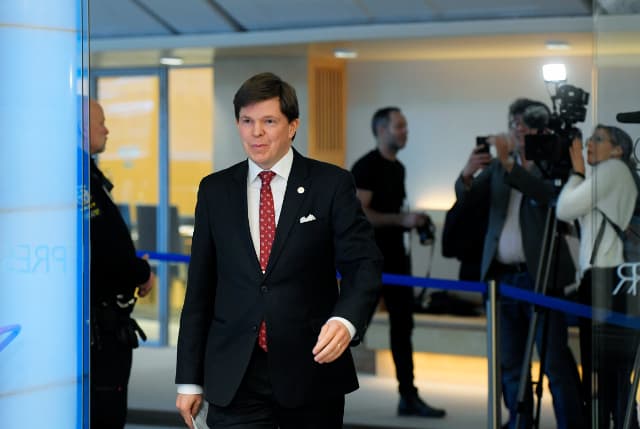Santa won't bring Sweden a new government for Christmas

Sweden won't get a new government in 2018, speaker Andreas Norlén said on Wednesday, giving the two prime minister rivals another month to reach a compromise.
Norlén told reporters at a press conference that he had wanted to find a solution to Sweden's government troubles by Christmas, but that the party leaders had not yet been able to reach a compromise.
He urged the two main candidates – incumbent centre-left leader Stefan Löfven of the Social Democrats and conservative opposition leader Ulf Kristersson of the Moderate Party – to spend their Christmas holidays speaking with other party leaders to try to gather enough support for a government.
The next parliamentary vote for a prime minister will take place on January 16th, said Norlén.
"Sweden needs a government," he said.
The country has now been without a new government for over 100 days since its election, and so far, parliament has rejected both Löfven and Kristersson in two separate votes. That means two votes remain before a snap election will automatically take place – no later than three months after the fourth vote.
Norlén said that the fourth vote – if the third is unsuccessful – will take place on January 23rd. This means that according to Swedish law a snap election can be held on April 21st at the latest, because Swedish elections are always held on Sundays.
READ ALSO: Everything we know about the Swedish election
Technically, a PM candidate does not need a majority of parliament to vote in their favour in order to be accepted, but if a majority vote against, the proposal will fail. This system, called 'negative parliamentarism', allows minority governments to rule thanks to abstentions or 'passive support'.
The relatively small Centre and Liberal parties have turned out to be the kingmakers of this election.
Both parties rejected their centre-right ally Kristersson because they argued they did not want to support a government that would effectively be dependent on the backing of the far-right Sweden Democrats.
But they also voted no to Löfven after the Centre Party pulled out of negotiations, arguing that the Social Democrats had not compromised enough to meet demands by the Centre Party, such as more flexible workers' rights, low-wage entry-level jobs and market rents for newly built apartments.
To catch up with everything that has happened since the election, The Local's timeline offers a handy overview. And if you have any questions about the process, please log in to comment below.
Comments
See Also
Norlén told reporters at a press conference that he had wanted to find a solution to Sweden's government troubles by Christmas, but that the party leaders had not yet been able to reach a compromise.
He urged the two main candidates – incumbent centre-left leader Stefan Löfven of the Social Democrats and conservative opposition leader Ulf Kristersson of the Moderate Party – to spend their Christmas holidays speaking with other party leaders to try to gather enough support for a government.
The next parliamentary vote for a prime minister will take place on January 16th, said Norlén.
"Sweden needs a government," he said.
The country has now been without a new government for over 100 days since its election, and so far, parliament has rejected both Löfven and Kristersson in two separate votes. That means two votes remain before a snap election will automatically take place – no later than three months after the fourth vote.
Norlén said that the fourth vote – if the third is unsuccessful – will take place on January 23rd. This means that according to Swedish law a snap election can be held on April 21st at the latest, because Swedish elections are always held on Sundays.
READ ALSO: Everything we know about the Swedish election
Technically, a PM candidate does not need a majority of parliament to vote in their favour in order to be accepted, but if a majority vote against, the proposal will fail. This system, called 'negative parliamentarism', allows minority governments to rule thanks to abstentions or 'passive support'.
The relatively small Centre and Liberal parties have turned out to be the kingmakers of this election.
Both parties rejected their centre-right ally Kristersson because they argued they did not want to support a government that would effectively be dependent on the backing of the far-right Sweden Democrats.
But they also voted no to Löfven after the Centre Party pulled out of negotiations, arguing that the Social Democrats had not compromised enough to meet demands by the Centre Party, such as more flexible workers' rights, low-wage entry-level jobs and market rents for newly built apartments.
To catch up with everything that has happened since the election, The Local's timeline offers a handy overview. And if you have any questions about the process, please log in to comment below.
Join the conversation in our comments section below. Share your own views and experience and if you have a question or suggestion for our journalists then email us at [email protected].
Please keep comments civil, constructive and on topic – and make sure to read our terms of use before getting involved.
Please log in here to leave a comment.